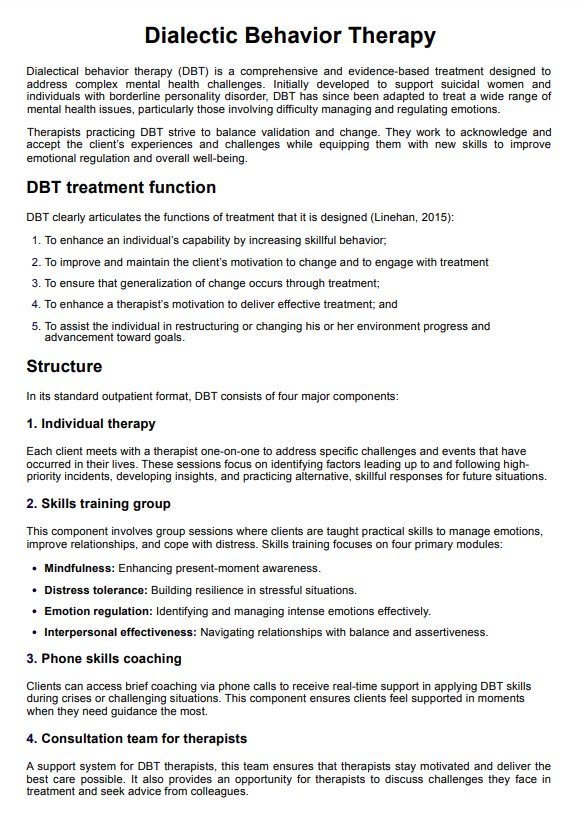Cognitive behavioral therapy (CBT) focuses on changing negative thought patterns and behaviors, while dialectical behavior therapy (DBT) incorporates acceptance-based strategies alongside skills for emotion regulation, distress tolerance, and interpersonal effectiveness.

Dialectical Behavior Therapy PDF
Unlock the essential skills of dialectical behavior therapy (DBT). Download our free Dialectical Behavior Therapy PDF to enhance your therapy practice.
Dialectical Behavior Therapy PDF Template
Commonly asked questions
Dialectical behavior therapy (DBT) is recommended for individuals with borderline personality disorder (BPD) and those struggling with emotional dysregulation, self-harm behaviors, substance abuse, eating disorders, and mood disorders.
Risks of dialectical behavior therapy (DBT) are minimal. Still, they may include discomfort or anxiety when addressing challenging emotions, potential conflicts in group therapy settings, and the need for ongoing commitment to therapy and skill practice.
EHR and practice management software
Get started for free
*No credit card required
Free
$0/usd
Unlimited clients
Telehealth
1GB of storage
Client portal text
Automated billing and online payments











